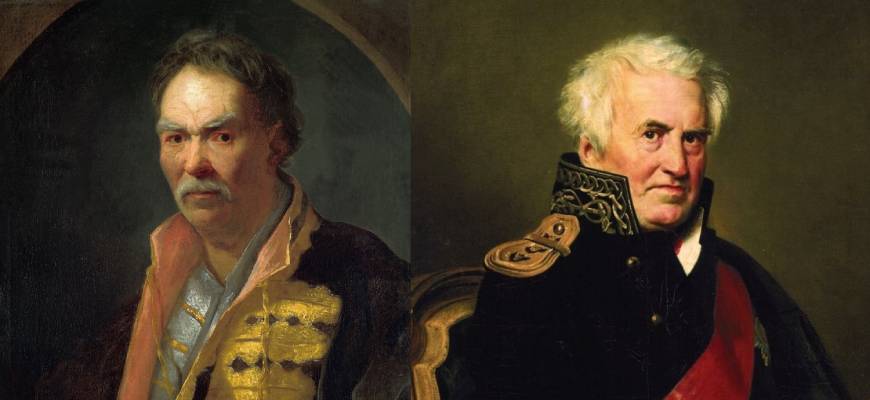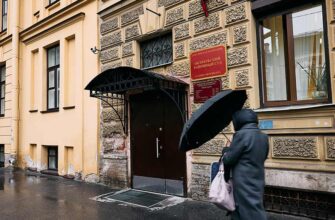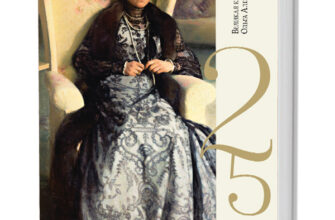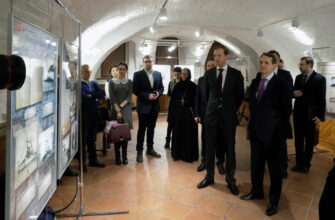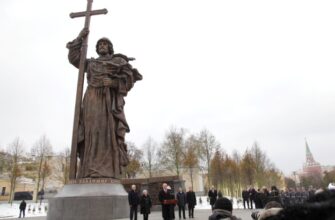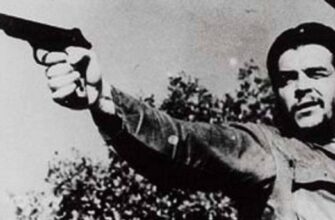20 March was marked in the Russian history with the birth of two people: Hetman Mazepa and Admiral Shishkov. One betrayed Russia, the other devoted his life to the protection of Russian antiquity.
Both are associated with the great Russian writer and historian Alexander Pushkin. About the first the famous poem “Poltava” has been written. About the second – letter and epigrams. At the same time, Shishkov recommended Pushkin to become a member of the Russian Academy.
Jan or Ivan Stepanovich Mazepa
Ivan Stepanovich Mazepa was born in 1639, was educated at the Polish court (the right-Bank Ukraine was then a part of Poland). At first he served as page of the Polish king John Casimir, the then as adviser to the Governor of the Ukrainian lands. During one of the battles Mazepa was captured by the Russian army, helped to defeat the former boss and earned Hetmanity step-by-step.
Mazepa was a well-educated man, who graduated from Kyiv-Mohyla Collegium (later he made it a University),then he continued knowledges at the Jesuit College in Warsaw and also in Germany, Italy, France and Holland. He knew seven foreign languages. Pushkin, drawing on folk memory and the documents also tells about Patriotic songs, written by the Hetman.
About Mazepa in addition to the Russian poets and historians wrote Byron (dedicated to him his poem) and Voltaire in his “History of Charles XII”.
Mazepa intrigued at the service, including written denunciations of his patrons, a mischievous policy has won the full confidence of the Emperor. Friends and patrons of Mazepa were Shafirov and Golovkin, officials of Peter I. In 1706, during the war of Peter the Great with king Charles XII of Sweden, Hetman began negotiations with the Polish king – a puppet of the Swedes – Stanisław Leszczyński and in 1708 openly joined their side. In 1709, died in Bender, was anathematized by the Orthodox Church.
Ukrainian society was not quite friendly to Russia – Mazepa wrote about this to the Tsar. It was the murmurs against extortion, the enslavement of peasants and military conscription. Some young Ukrainians – “friends of the bloody old times”, demanded the termination of ties with Russia and transfer to the side of Charles XII. However, when it came down to it, the troops remained loyal to the Union with Russia except Baturinsky regiment. The Hetman was not popular in the people – apparently, people felt that, in the words of Pushkin, “there is no Fatherland for him.”
What pushed the Hetman of treason is still unknown. Whether the hatred of the Russian oppressors of the Fatherland, acquired in Poland, whether a love relationship with a relative Leszczynski, or pride. Ambitious Mazepa wanted to lead the “Grand Duchy of Ukrainian”. On the basis of correspondence with the poles and discuss with them the conditions of transfer to Ukraine (he wanted some kind of recognition of the Prince of Polotsk and Vitebsk), the historians had the impression of more prudence than anything romantic.
Relations with the poles and Swedes carried on the canals, which can hardly be called Patriotic: Jesuit zalensky, Countess Dulska and exiled Bulgarian Bishop. The breastplate of Mazepa and Orlik later passed into Islam.
At the same time, the other companion is the nephew and heir of the childless Mazepa – Andriy Woynarovsky, was a figure more lovely, attractive and known in Europe. “Wojnarowski was among the few people whom Peter the Great honored name of dangerous enemies,” – wrote A. Bestuzhev. He was extradited to Russia from exile and ended his life in exile in Yakutsk. Poet-Decembrist K. F. Ryleev wrote “Wojnarowski” eponymous poem, in which he praised Andriy as a hero fighting for freedom.
Personal life Mazepa was not less violent than his political life. Hetman was married to a widow, in 1702, she died. In 1704 he woo the young goddaughter, daughter of judge Basil Kochubey named Matrona, which then lived sinfully then, but was refused (communication with God-daughter was equal to incest). The lost honor of the daughter prompted his father to compose a denunciation of Mazepa that Peter did not heed and made the talebearer to crack Hetman. This story was embodied by Pushkin in his poem “Poltava”, revealing her contradictory personality rebellious Hetman, and calling the heroine Maria.
And vainly there the stranger sad
Would search the grave of Hetman:
Mazepa is forgotten in dead!
But only in the triumphant mass
Once a year anathema him mentions
Threatening, thundering his past.
(from the poem “Poltava”)
Alexander Semenovich Shishkov
Alexander Semyonovich Shishkov was born on 20 March 1754 in Moscow. Admiral, philologist, member of Russian Academy and Minister of education in 1820s. Comes from an ancient family Shishko. Shishkov was raised in a traditional patriotic spirit by reading “Sacred history” and “lives of saints” and was engaged in promoting such education in Russia.
The Admiral became the center of enthusiasts of Russian antiquity, based on Orthodoxy and purity of “Russian” language. He founded in 1810 “Conversations of fans of the Russian style” which was in the controversy with Association “Arzamas” of Karamzin. The controversy unfolded after the reform of the Russian language Karamzin, gave rise to the so-called “new style”. Then he had founded the Russian Academy, in contrast to the foreigners in the Academy of Sciences, which combined Russian patriots including those of the “Arzamas”. After the death of the founder the Academies merged.
In the literature the fact of the rivalry and the conclusion of hostility Shishkov and Arzamastsev, for example, Pushkin is often exaggerated. The prove for the version is caustic epigram of the poet (though he gave taunts to almost all friends):
There are three emenies of mind
Shishkov, Shakhovskoy and Shishmatov…
(epigram “Surly trio of singers…”)
Shishkov was against language borrowings, but no stranger to sharing knowledge and actively used foreign languages in his works. «Every language is enriched by the other, but not borrowing from his words, but reproducing our concepts it opens the way for us and gives the mind strength and knowledge to extract from the roots of own language hitherto unknown and important thoughts for our thinking», – he wrote, being perfect mastery of the Slavonic languages and European. Alexander Shishkov just stood for the preservation of national values, of which language plays a huge role.
The man extremely kind by nature, he was respected by people of different beliefs. “Furious Vissarion” Belinsky called Shishkov “a profound connoisseur of native language” and “good man”. Pushkin in Eugene Onegin, not without irony, stipulated in the quotation in French:
She seemed to be true incarnation
Du comme il faut… (Shishkov, pardon
I do not know the translation.)
(from the poem “Eugene Onegin”)
During the war with the Swedes he fought at sea in the squadron Chichagov. During the war with Napoleon, he wrote manifestos, which were addressed by the king to the people, moved by the national spirit. He was well aware of how detrimental to society in the acute periods of history a passion for foreign culture.
Shishkov saw many examples of the depravity of French and their godlessness. For example, in Greece, the French were daubed with inscriptions of the icon, which even the Turks did not. The Admiral believed that from this people, who staged atrocities in the revolution, we have to learn nothing.
Alexander was married twice (and both times on the foreign women, the Protestant and the Catholic), but he had no children . At the same time, after the death of his brother, he took care of his sons, one of whom, Alexander was a hung and a friend of Pushkin.
In extreme old age (he lived until 87 years) great elder found a special joy to feed flocks of birds from the hand. Wherever he was, already blind, pigeons came to his window .
Sources: History of Russia in IX-XVIII centuries // edited by Moryakov V.I. – Moscow, Exmo, 2004. Pushkin A.S. Works in one volume. – Moscow, Paninter, 1999. Filatove-Shishkova V. Alexander Semyonovich Shishkov “Restless Russian”. // Nash Sovremennnik. 2001 #4 Belinsky V. G. Complete works. Volume 5. Articles and reviews (1841-1844). – Moscow, Publishing house of the USSR Academy of Sciences, 1954. Shishkov A.S. The argument about old and new syllable Russian language. St.Petersburg. Medical printing-house, 1813. Ryleev K. F. Wojnarowski. Russian romantic poem. – Moscow, Pravda, 1985. Quoted from: Lib.ru
